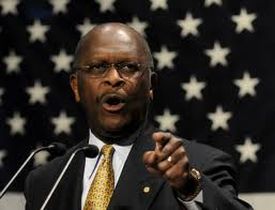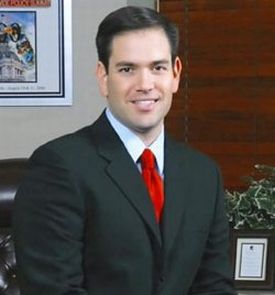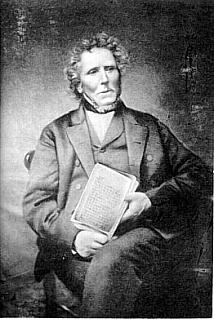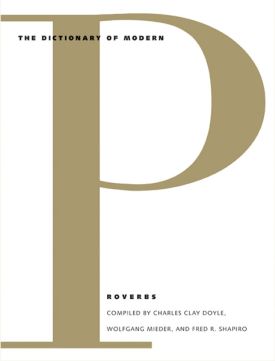Scandals Ad Absurdum
From The New CriterionScandalous
Well, that does it. Up until now I have continued to take in — as people used to say — The Washington Post’s printed edition in spite of the daily annoyance its unacknowledged biases cause me. Like many older people who grew up with newspapers, I still like the experience of reading them in the broadsheet form I have long been accustomed to. That is a mode of information access which is still a pleasure to me, whereas reading them on line, as I do with the other papers I consult every day, is work. I shall particularly miss my ten minutes a day spent with the comics, as I have learned to call them, though they were always the funnies when I was a youth. I know you can get them on-line, and in color (one good thing about the Post is that its two comics pages are still in gritty, old-fashioned monochrome), but I should feel ashamed of myself if I took time out from my daily toil at the computer to click on each of the fifteen or twenty strips that I now read each morning with my coffee.
So bye-bye, Blondie and Big Nate. Farewell, too, to the brilliant Richard Thompson’s “Cul de Sac.” At least I shall be glad of the excuse to stop reading its neighbor on the page, “Doonesbury.” But the thing has to be done, even if there is a price to be paid. When I finally decided to stop taking The New York Times, they delivered the paper to me anyway for a month or two and then sent me a bill — which has subsequently gone out to not one but two (so far) collection agencies, by whom I continue to be dunned. Thieves! Crooks! Extortionists! Somehow such sharp practice doesn’t surprise me, coming from the Times. Coming from the Post it would, still — just about. Up until recently, at least, the paper seemed to have had some sense of shame, like a naughty child who knows that he has been naughty, and that his parents can see through his lies, even though he persists in them anyway.
Exactly five years ago, I wrote in these pages (see “Biased Sensationalism” in New Cri of December, 2006) about the paper’s scandalous scandal-mongering in an ultimately successful attempt to drive Senator George Allen of Virginia from office. I don’t exactly remember why I thought this an aberration at the time. Perhaps the memory of the then more-recent Clinton scandals made me believe that the paper was, like the rest of the media, just scandal-crazy. Or scandal-addicted. Sure, they prefer to attack Republicans, but make it juicy enough, especially if there is sex involved, and they’ll go after Democrats as well. That may well be true, but if the scandal hunt remains a pleasure for its own sake, the pursuit of scandal for partisan purposes and, in particular, the attempt to discredit Republicans by any means necessary is now the main business, the stock-in-trade of this “Independent Newspaper” (as it continues to bill itself). The New York Times and the major broadcast networks doubtless led the way, but the Post’s having fallen into bad company is no excuse.
What finally pushed me over the edge was the paper’s campaign against the newly-elected Senator Marco Rubio of Florida, a man mentioned by everyone as a sure bet to be offered the Vice-Presidential slot on the GOP ticket next year by any of those who are now contending for the presidential nomination — though he has said he does not want it. The supposed scandal from beginning to end consisted of the senator’s having been vague about the dates of his parents’ exile from Castro’s Cuba. It seems that they first came to this country in 1956, three years before the Revolution, then found after attempting to return there that they had rather not do so. All this happened more than a decade before Senator Rubio was born. And even at that, he had given the correct dates on more than one occasion. Nor was there any record of his ever having claimed directly that his parents had fled from Castro on their first entry into the U.S. Yet, so far as the Washington Post was concerned, once its reporter Manuel Roig-Franzia had concocted his absurd “scandal,” the paper was (doubtless reluctantly) forced to conclude that “Marco Rubio on national ticket could be risky bet for Republican Party.”
Mr Roig-Franzia, you may remember, was the man who a couple of years ago was punched by his 70-year old editor at the WaPo’s “Style” section, Henry Allen, whom he had referred to with an anti-gay slur after he, Mr Allen, had remarked that Mr Roig-Franzia had co-written “the second worst story I have seen in Style in 43 years.” That, by the way, was another compilation of scandals throughout history in which Mr Allen had spotted numerous errors. I remember being thrilled at the news as it suggested there were, after all, limits to what people can say about each other with impunity, even at The Washington Post which was and is one of the leading exponents of media non-accountability. Alas, Mr Allen, a Marine and Vietnam War veteran, was swiftly persuaded to exit stage right, leaving the Post and its reporter, to get back to their normal business of sliming conservatives on the one hand while puffing the Castro régime in Havana on the other. Mr Roig-Franzia, a Spaniard by origin, is said to be writing a biography of Senator Rubio. I can hardly wait.
Yet the affair could hardly have had any other conclusion. If, as I believe, scandal is now the Post’s main business, it would hardly do to foul its own nest by suggesting that there was something wrong with its reporters casting unsubstantiated aspersions on each other’s character, any more than on the characters of their hapless victims in the worlds of politics and business. Some creative thinker in management might even have disingenuously pretended to think that the epithet used by Mr Roig-Franzia to describe Mr Allen — which, applied to a person of the male sex, is tantamount to calling him a homosexual — should have been taken by the latter as a compliment, or an endearment. Of course, no one does so take it. Not even homosexuals. The only words that most newspapers, even today, will not print are almost the only ones on whose meanings everyone still agrees. They belong to that ever-narrowing strip of non-partisan reality which is being continually shaved on both sides by the encroachment of opinion and propaganda — which are, of course, not necessarily the same thing. As Julian Glover recently wrote in The Guardian of the British media, “Comment, like a strangler-fig, is getting stronger than the politics on which it feeds. That is the way things have gone in America and it is not a happy sight.”
Actually, I don’t think he’s quite got that right. It’s not “comment” — as such, anyway — that is the problem but what he elsewhere identifies as “tribalism.” And, as he hints diplomatically throughout his farewell column — he is going to Downing Street to write speeches for the Prime Minister, David Cameron — The Guardian is one of the most tribal of British newspapers. At that, however, his own presence there is evidence that there is more genuine diversity of opinion there than there is at most American newspapers. I continue to read it for delights like Suzanne Moore’s recent critique of gay marriage from the Left.
Now it seems homosexuality is as fixed as heterosexuality. It’s not about what you do, but who you are. No longer a spectrum, instead people have to choose sides. A gay identity, amplified by consumer choice, has become something of a straitjacket. A narrative has been set in stone. The conventional discourse is that a young person may be unsure and experiment for a period. They then must face up to who they “really” are, as though sexual preference determines everything else, and then have the courage “to come out.” Liberal society will tolerate them as long as they stay in the box they have ticked, and if they behave themselves, they can then have what straight people desire. A romantic partner for life. Who knows? Maybe even a white wedding. Zip-a-dee-doo-dah. I don’t want anyone not to enjoy themselves, but isn’t it all depressingly straight-edged? Gone are the days of transgression or even deviation from the norm. Marriage is an institution set up to protect property and patriarchal rights that we choose to overlay with our need for sex, romance, passion and companionship. Extending this right to gay people may seem generous, and may still be seen by the haters as destroying the sanctity of marriage, but something else is going on. This is not about conservatives accepting homosexuality, but about making homosexuality conservative.
Say what you like about this, there is actual thinking going on here, as there so seldom is anymore in that very large segment of the American commentariat that moves in lockstep with the “progressive” consensus — for whom it is politically necessary to pretend that the only possible reason anyone might oppose gay marriage is “bigotry.”
Not that you won’t still find routinely on the paper’s op ed pages articles like this one by Hadley Freeman titled: “The Republican presidential candidates are farcically unelectable: Obama must have made a pact with the devil — how else to explain his good fortune?” An article like this is literally meaningless apart from its context in the Guardian. Ah, yes, that’s the Guardian’s world heard from. Interestingly, in the course of it Ms Freeman makes the point, concerning Mitt Romney, that “Mormonism isn’t traditional Christianity because traditional Christians don’t believe, for example, that God was once a man who lived on a different planet, as Mormons do. And in a country as Christian as America, that could be problematic.” Ah, yes, could be. It could also be that Americans will this time around heed The Guardian’s advice as to whom they should elect to the presidency, as they did in 2008 but not, despite the paper’s concerted if long-distance campaign to convert Ohio Republicans into Democrats, in 2004. But I don’t think either thing will prove true, and for the same reason that no one apart from those already persuaded of it will take any notice of her conceit of the Republican candidates’ unelectability — namely, that we’re all relativists now.
Everybody else, that is, is entitled to his own reality as a courtesy, so that I may be entitled to my own reality — never mind that, in promoting it, I may very well accuse the opposition of being, like Ms Freeman, out of touch with what I am pleased to call reality tout court. She and her ideological confreres will doubtless accuse me of the same thing. But what else can we do? That reality, the real reality, has unfortunately become a dead letter since we started regarding it as an intellectual construct rather than an indisputable fact. Now it’s only a supposedly indisputable theory, like Global Warming or Keynesian economics. Not quite the same thing, I think you will agree. We may as well admit, however, that this unspoken and unsavory compact by which we all get to be the absolute rulers of our own little fiefdoms in brain-reality is entered upon at least partly for the convenience of the scandal-mongers and the enrichment of their corporate-media paymasters.
 |
For example, if there were any respect for merely factual, non-political reality, the scandal — it would be tedious to put the word in quotation marks every time it is used, but you should take them as read — of Herman Cain’s alleged sexual harassment of, well, somebody (possibly, at the time of writing, even three somebodies) would never have seen the light of day. The allegation, assuming anyone were making it apart from an ambitious reporter for Politico, is inherently unverifiable, as we learned almost exactly 20 years ago in the case of Clarence Thomas. But to the media of today, even more than to that of 20 years ago, verifiability is not even a consideration. Once the scandal-machine clicks into gear — and almost anything plausibly represented as a secret may start it off — the only thing that matters becomes how the victim reacts to the baseless, unverifiable, anonymous charges against him on the well-known principle that “it’s not the crime but the cover-up.” At least if he is a conservative.
Such is the tribalism in the American media. Mr Justice Thomas, as it happens, was and is a member of an extremely small band of black American conservatives. So is Mr Cain. What are the odds of that, do you suppose? There are understandable reasons why their numbers are so few, but one of them is that the implied betrayal of their tribe — which is also the media’s tribe — puts (as Mr Cain put it) “a bull’s-eye on my back.” That’s why, just as they did in the case of Clarence Thomas, the media took it as their prerogative to regard the allegations against him as being true, as it were, by definition — often without even the fig-leaf of some such formulation as “troubling, if true” or the hollow pretense of criticizing Mr Cain not for sexual harassment but for how he responded to the charge of sexual harassment.
The harpies of The New York Times’s op ed pages, Maureen Dowd and Gail Collins, were particularly gleeful about sinking their claws into Mr Cain — as one might almost have expected. “It is a truth universally acknowledged that it’s not the scandal that kills you; it’s the cover-up,” wrote Miss Dowd, proud as always to be thinking in clichés. “Herman Cain has added a corollary: It’s not the cover-up that kills you; it’s the cascade of malarkey that spills out when you try to cover up the cover-up.” What does that mean? Wouldn’t the cover-up of a cover-up be like a double-negative and equal an exposure? Miss Collins affects to think that the very uncertainty of the charges against him amounts to one among a plethora of reasons not to take him seriously as a candidate, since “the one thing we’ve learned for sure is that Herman Cain’s staff has no idea what Herman Cain has been up to.” It goes without saying that ignorance can only be hiding something sinister — if only the candidate’s inability to deal with a media-generated crisis.
Even the supposedly-but-not-really conservative Kathleen Parker of the Post, Sarah Palin’s nemesis of old, pulled a long face and wrote that, “as political history makes clear, where there is smoke, there is usually at least a match.” That would be media history, not political history — except in the sense that, in the future, media history and political history will be, must be, one and the same. That’s the price we pay for making scandal, in the broadest sense of criticism of our leaders’ intelligence, personality or character rather than their policies, the most basic principle of our political life. Another consequence is the seemingly endless series of “debates” (I’m afraid we have to unpack the quotation marks again) between Republican candidates which have proved such a surprise hit on cable TV. Of course, if they really were debates, they wouldn’t be so popular, not in this day and age. It’s because they are really a form of reality TV — as President Obama himself noticed when he told Jay Leno, “I’m going to wait until everybody is voted off the island. Once they narrow it down to one or two, I’ll start paying attention.”
Not that the Democrats’ debates in which the President took part in 2007-2008 were not also reality TV. Like, for that matter, his appearance on Jay Leno’s show. It is at least somewhat tempting to think that the GOP candidates are getting no more than they deserve for consenting to be the performing bears in the never-ending media circus that election campaigns have become during the reality-TV era. It’s astonishing to think, now, that TV debates didn’t become a normal part of the political landscape until 1976, thirty years into the television era. But up until then, political tribalism was a very different thing in America. A candidate like Herman Cain (or Barack Obama) would never have come close to a major party’s nomination to the presidency. It was Jimmy Carter who established the precedent of letting the media rather than the party faithful do the initial screening of candidates, and now we can hardly remember that there was ever any other way of doing it. Maybe it’s time for someone to say, with Mr Cain, “How’s that working out for us?” His own experience has now provided the answer to the question.
Discover more from James Bowman
Subscribe to get the latest posts to your email.







